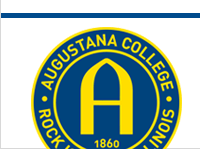Course
Religion Senior Inquiry
Document Type
Student Paper
Publication Date
2018
Disciplines
African American Studies | Biblical Studies | History of Christianity | Practical Theology | Race and Ethnicity | Race, Ethnicity and Post-Colonial Studies | Religion | Religious Thought, Theology and Philosophy of Religion | Rhetoric | Social Influence and Political Communication | Speech and Rhetorical Studies
Description, Abstract, or Artist's Statement
Black liberation theologians come to terms with white supremacy by collectively remembering the story of the Exodus and Jesus' crucifixion--affirming God's preference for freedom and in-the-world salvation. The particular history of white American Christianity requires a different story to provide the foundation for our social memory. As white American Christians, we have certain blind spots—blind spots created by historical and social privileges that have given white people unequal access to power and resources. The story of Zacchaeus has the potential to help reframe white Christianity’s conception of race relations in the United States, shifting from a reconciliation paradigm to a reparations paradigm and beginning a theology of transformation. White American Christians can respond to black liberation theology by rejecting the collective narratives that sustain racism, white supremacy, and other forms of oppression. Living a theology of transformation means that white American Christians will begin to tell new stories, stories that make Jesus’ love for all people the central theme, framing problems, solutions, and moral norms accordingly.
Augustana Digital Commons Citation
Griggs, Hannah Kathleen. "Toward a Theology of Transformation" (2018). Eddie Mabry Diversity Award.
https://digitalcommons.augustana.edu/mabryaward/9
Included in
African American Studies Commons, Biblical Studies Commons, History of Christianity Commons, Practical Theology Commons, Race and Ethnicity Commons, Religious Thought, Theology and Philosophy of Religion Commons, Rhetoric Commons, Social Influence and Political Communication Commons, Speech and Rhetorical Studies Commons


Comments
Prize Winner, 2018